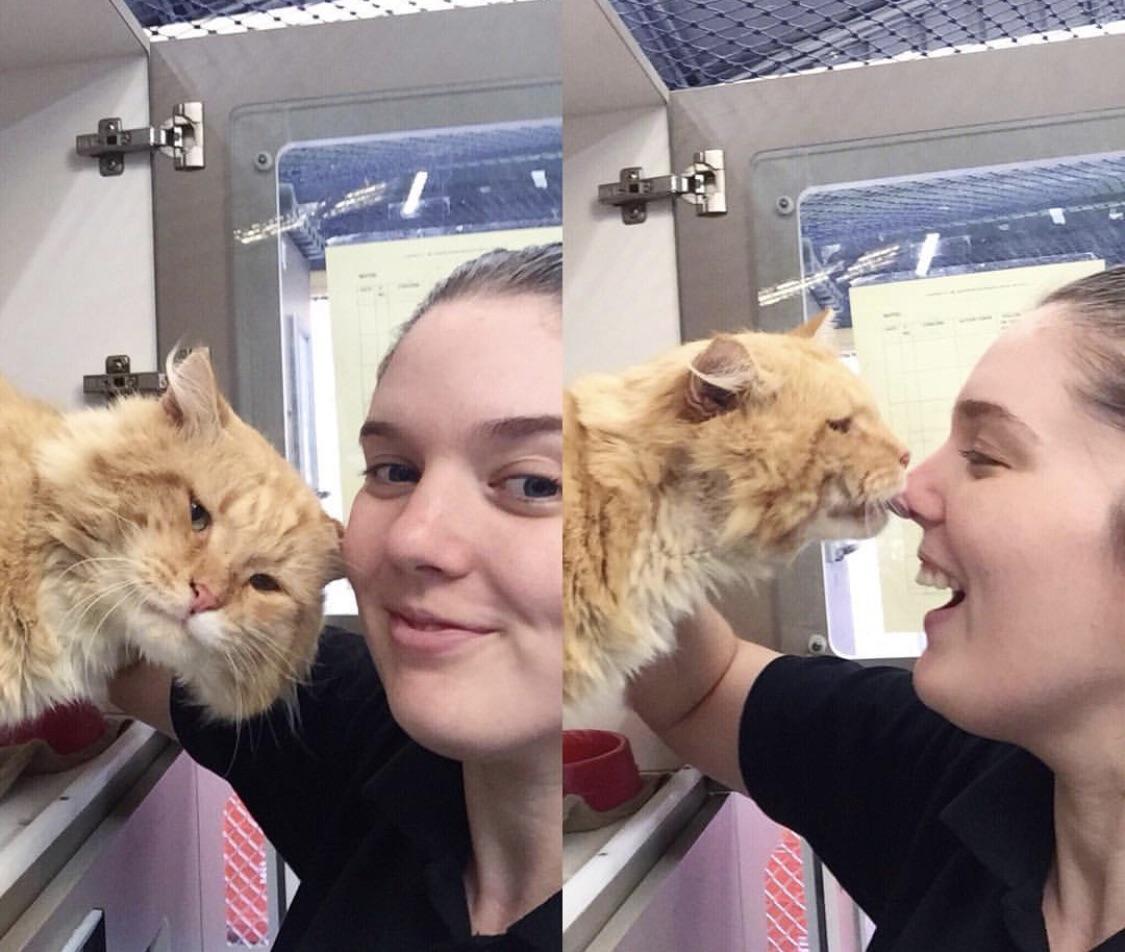You might not have heard of the words. I certainly hadn’t until today. They are “gentling” and to be “gentled”. Gentling is the action of stroking a cat gently and talking to them equally gently. It is the kind of thing that a rescue centre worker would want to do naturally because it is fun for them provided the cat accepts it because they are socialised. Clearly it wouldn’t work with a genuine feral cat. Although unsocialised cats are actually desperate for interactions with a human but they simply are too fearful to enjoy it. Once they come around and have been socialised, they are much happier. But rescued cats at shelters are often going to be scared and anxious. This promotes disease.

A study published in 2014 found clear benefits to cats at rescue centers when they were gentled. And those benefits extended to an increased production of the principal weapon that they have to protect themselves from pathogens and toxins namely secretory IgA. These antibodies are key components of the mucosal mucus and other body secretions such as saliva and tears. They protect against upper respiratory disease.
In the study they assessed 139 cats rated as anxious when admitted to a shelter. They were divided into two groups: one a control group and the other the group that were gentled.

The cats in the gentled group were gentled four times daily for 10 minutes over a period of 10 days. If they were unaccepting of the human hand, they used a tool instead. This would have been a miniature hand on a stick I expect.
They measured the cats’ mood and emotional state in terms of anxiety, frustration and contentment. The gentled cats were less likely to be anxious or frustrated than the control cats. They measured the production of S-IgA in the gentled cats compared to the control cats. They found an increase in the production of this antibody compared to the control cats.
There was a significant reduction in the shedding of diseases such as herpesvirus and calicivirus in the gentled cats compared to the control cats. Other diseases assessed were: Mycoplasma felis, Chlamydophila felis, and Bordetella bronchiseptica.
“There was a significant increase in shedding over time in Control cats (23%, 35%, 52% on days 1, 4 and 10, respectively), but not in gentled cats (32%, 26%, 30% on days 1, 4 and 10, respectively)”. This relates to the diseases referred to.
The control cats were 2.5 times more likely to develop upper respiratory disease over time than gentled cats. Their conclusion is clear namely that “gentling anxious cats in animal shelters can induce positive affect (contentment), increase production of S-IgA and reduce the incidence of upper respiratory disease.”
The back story to this is referred to in the discussion on this study by the author. They say that alleviating emotional pain is clinically important. And positive interactions with humans are a “valued activity for cats”. They conclude that “current findings indicate that positive human interaction, in the form of gentling, can enhance emotional well-being and mucosal immunity and decrease the incidence of URD in shelter cats.”
The study: Effect of gentle stroking and vocalization on behaviour, mucosal immunity and upper respiratory disease in anxious shelter cats
Nadine Gourkowa, Sara C Hamon, Clive J.C. Phillips.

